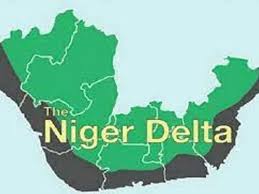Oil-producing communities in the Niger Delta are taking fresh steps to ensure they harness the benefits of the Petroleum Industry Act (PIA) for rapid and sustainable development. Stakeholders from across the region made this commitment at the Bridges Project roadshow and town hall series held in Ekpan, Uvwie Local Government Area of Delta State.
The event, organised by the Foundation for Partnership Initiatives in the Niger Delta (PIND), brought together a cross-section of participants including settler representatives, regulators, civil society organisations, and community leaders. The aim was to deepen understanding of the Host Community Development Trusts (HCDTs) and ensure equitable distribution of resources allocated under the PIA.
Under the law, signed in 2021, oil companies are mandated to allocate three per cent of their operating expenditure to HCDTs for the benefit of host communities. However, many communities remain unclear about how the trusts function and how they can actively engage to ensure transparency and accountability.
PIND’s Advocacy Manager, Mr. Chuks Ofulue, stressed the need for awareness in unlocking the full potential of the PIA. He explained that the law gives communities the opportunity to drive their own development, but without knowledge, many may not be able to take advantage of it. “The PIA opens doors for communities to take charge of their development. But awareness is key. With the right knowledge, communities can ensure transparency, demand accountability, and actively shape projects that benefit them,” Ofulue said.
He added that demystifying the Act and its framework was central to empowering communities to engage constructively, prevent conflict, and ensure that projects reflect local priorities.
Chairman of the Delta State multi-stakeholder platform, Mr. Sylvester Okoh, called on more HCDTs to join the collaborative platform. According to him, the trusts provide a stronger framework compared to the previous General Memorandum of Understanding, because they are now backed by law. “We’ve been bringing the leadership of the various Delta HCDTs together, sharing experiences, and addressing issues of concern. The HCDTs are at a point where the GMoU stopped, but because they are now backed by law, there are clear directives that will ensure better outcomes for our communities,” he stated.
Board of Trustees members of different HCDTs also shared their perspectives. Mr. Pender Agwarive, BOT Chairman of Uherevie HCDT and member of the Bridges Project’s Multi-Stakeholder Platform, said the programme provided long-awaited clarity. “For years, our communities have heard about the PIA but didn’t really understand how it affects us. What PIND is doing here gives us clarity. Now we know the questions to ask and how to actively participate so our communities truly benefit from this law,” he explained.
PIND’s PIA Consultant, Ms. Rachael Misan-Ruppee, said that with the awareness already created across five states — Akwa Ibom, Bayelsa, Delta, Rivers, and Ondo — communities are now better equipped to manage their development projects. She emphasised the need for responsible HCDT managers who can ensure sustainability and accountability in community-led projects.
Also speaking, the National Coordinator of the Centre for Peace and Environmental Justice, Comrade Sheriff Mulade, warned that transparent governance will be critical to the success of the trusts. He said accountability in managing the HCDT resources would determine whether or not the PIA achieves its purpose.
A native of Olomoro community in Isoko South Local Government Area, Ms. Stella Ejeh, said the town hall gave people renewed hope. “In my community, we have seen many uncompleted and abandoned projects, but with platforms like this, we believe that we can finally see real changes,” she stated.
Other HCDT leaders such as Mrs. Bayai Ekomieyefa, Chairperson of Ogulagha Tora-Abade HCDT; Ms. Ademola Doris, Acting Chairperson of Warri Kingdom Coastal HCDT; and Mr. Satu Peters, Chairman of Ogulagha-Ibe Agbonu HCDT, expressed optimism that the awareness drive will strengthen the implementation of the PIA and deliver real development to Niger Delta host communities.
The Bridges Project also highlighted its Multi-Stakeholder Platform (MSP) model, which encourages dialogue, collaboration, and sustainability in community development initiatives. Organisers say the model is designed to promote inclusivity and reduce conflict over resource allocation.
With the PIA promising a legal framework for channeling oil industry resources directly to host communities, stakeholders believe that awareness, accountability, and unity among HCDTs will be crucial to achieving lasting development in the Niger Delta.
